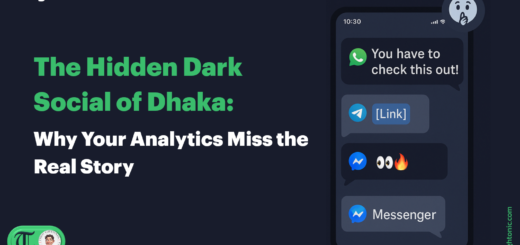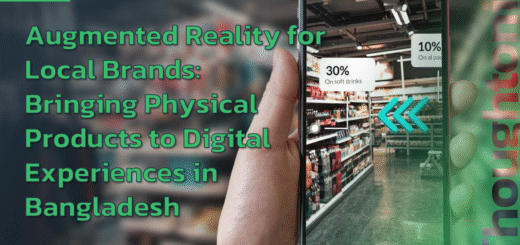The Great Reshuffle; Navigating the Future of Work in the Age of AI
The numbers I see from the World Economic Forum’s (WEF) “Future of Jobs Report 2025” are both staggering and exhilarating. They paint a clear picture of a future defined by change—a “great reshuffle” of the global workforce. The headlines you’ve seen are not just clickbait; they represent a fundamental truth: our careers, our companies, and our economies are on the brink of a profound transformation.
The key takeaway is this: the future of work is not just about jobs being lost to machines. It’s about a dynamic shift where old roles are sunsetting and new, more human-centric ones are rising. Success in this new landscape will not be measured by the years of experience on your resume, but by your commitment to continuous learning and your ability to adapt.
The Numbers Tell a Story of Transformation
The WEF’s data is eye-opening. By 2030, a projected 92 million jobs will be eliminated due to automation, AI, and other technological advancements. This isn’t just about factory workers; it’s about administrative staff, data entry clerks, and even some creative roles that are becoming increasingly automated.
However, this is only half the story. The same report projects the creation of 170 million new jobs by 2030. This results in a net gain of 78 million jobs globally. The new roles are concentrated in areas driven by macro-trends like the green transition and technological evolution. We’re talking about roles in renewable energy, data science, cybersecurity, and even in essential human-centric sectors like healthcare and education.
The third, and perhaps most critical, statistic from the report is that 86% of companies will be impacted by AI. This isn’t a hypothetical threat; it’s a present reality. Companies are already using AI to automate tasks, improve efficiency, and reshape their business models. As a result, the skills required for nearly 40% of all jobs will change.
A Holistic View from Other Sources
While the WEF report is a cornerstone, other major organizations have their own projections, offering a more complete picture of the coming changes.
- Job Displacement: A report from Goldman Sachs, cited by Exploding Topics, suggests AI could replace the equivalent of 300 million full-time jobs globally, while Statista projects 83 million jobs will be lost in the next five years.
- Job Creation: Conversely, Statista predicts 69 million new jobs will be created in the same period.
- AI’s Reach: A PwC survey of CEOs found that 75% expect generative AI to significantly change their business within the next three years.
These different figures are a testament to the varying methodologies and scopes of these reports. The common thread is clear: the scale of disruption is unprecedented, and no industry is immune. Jobs most susceptible to automation are consistently identified as clerical and administrative roles, such as data entry clerks, cashiers, and bank tellers.
What This Means for You and Your Career
This is where the HR perspective becomes crucial. The future of work is not just a company’s problem—it’s a personal challenge for every professional. To navigate this reshuffle successfully, you must become a lifelong learner. The skills that will save careers are not hidden behind paywalls; they are accessible today, often for free or at a low cost.
The skills of the future can be broken down into two main categories:
Technological and Specialized Skills: These are the most obvious “in-demand” skills. The jobs being created are in fields that require deep technical knowledge.
- AI and Machine Learning: Understanding how to work with, train, and deploy AI models. This includes roles like AI specialists, data scientists, and prompt engineers.
- Data Analysis: The ability to collect, analyze, and interpret large datasets to inform business decisions.
- Cybersecurity: Protecting digital assets and systems from threats.
- Green Skills: As the green transition accelerates, skills in environmental engineering, renewable energy, and sustainability reporting will be critical.
Human-Centric “Power Skills”: AI can handle the data, the code, and the repetitive tasks, but it cannot replicate genuine human qualities. This is your competitive advantage. The WEF and other experts consistently highlight these as the most valuable skills for the future:
- Creative and Analytical Thinking: The ability to solve complex problems in novel ways. While AI can generate ideas, human creativity is needed to guide and apply them.
- Resilience, Flexibility, and Adaptability: The future is uncertain. The ability to pivot, learn new things, and handle ambiguity will set you apart.
- Emotional Intelligence: Understanding and managing your own emotions, and empathizing with others. This is critical for leadership, collaboration, and building strong teams—something AI simply cannot do.
- Leadership and Social Influence: Inspiring and guiding others. The human touch remains paramount in managing people and driving change.
A Roadmap for the Future-Ready Professional
So, what should you do today to prepare for tomorrow?
- Assess Your Current Skills: Take an honest look at your current skill set. What are your strengths? Where are the gaps? Free online tools and assessments can help you identify areas for development.
- Embrace Continuous Learning: The idea of a single career path is becoming obsolete. Think of your professional life as a series of upskilling and reskilling sprints. Platforms like Coursera, edX, and LinkedIn Learning offer countless courses and certifications. Many companies now offer internal training programs and tuition reimbursement.
- Find Your “Human” Edge: Don’t just focus on technical skills. Cultivate your creativity, hone your critical thinking, and practice your communication. Volunteer for projects that require collaboration and problem-solving.
- Network Intentionally: Talk to people in roles you find interesting. Listen to podcasts and webinars to stay on top of industry trends. The insights you gain from a five-minute conversation can be more valuable than hours of reading.
From an HR perspective, this isn’t just a trend; it’s a strategic imperative. The companies that will thrive are those that invest in their people, creating a culture of lifelong learning. The individuals who will succeed are those who take ownership of their own professional development. The great reshuffle is coming, and it’s up to each of us to not just survive it, but to thrive in the opportunities it presents.
C. Basu.
Sources:
- The Future of Jobs Report 2025 | World Economic Forum: https://www.weforum.org/publications/the-future-of-jobs-report-2025/
- 60+ Stats On AI Replacing Jobs (2025) | Exploding Topics: https://explodingtopics.com/blog/ai-replacing-jobs
- 59 AI Job Statistics: Future of U.S. Jobs | National University: https://www.nu.edu/blog/ai-job-statistics/
- AI and Jobs: How Many Roles Will AI Replace by 2030? | Litslink: https://litslink.com/blog/how-many-jobs-will-ai-take-over-the-statistics
- 10 Skills for the Future of Work | Cloud Assess: https://cloudassess.com/blog/future-of-work-skills/



